What Is DSG Transmission Service? Complete Guide for Volkswagen Owners
A DSG transmission service involves changing the transmission fluid and replacing the filter to keep the dual-clutch system running smoothly. This service helps prevent wear, overheating, and potential damage to the transmission’s clutches and hydraulic components. Regular maintenance of the fluid and filter is essential because the fluid acts as both a lubricant and hydraulic medium.
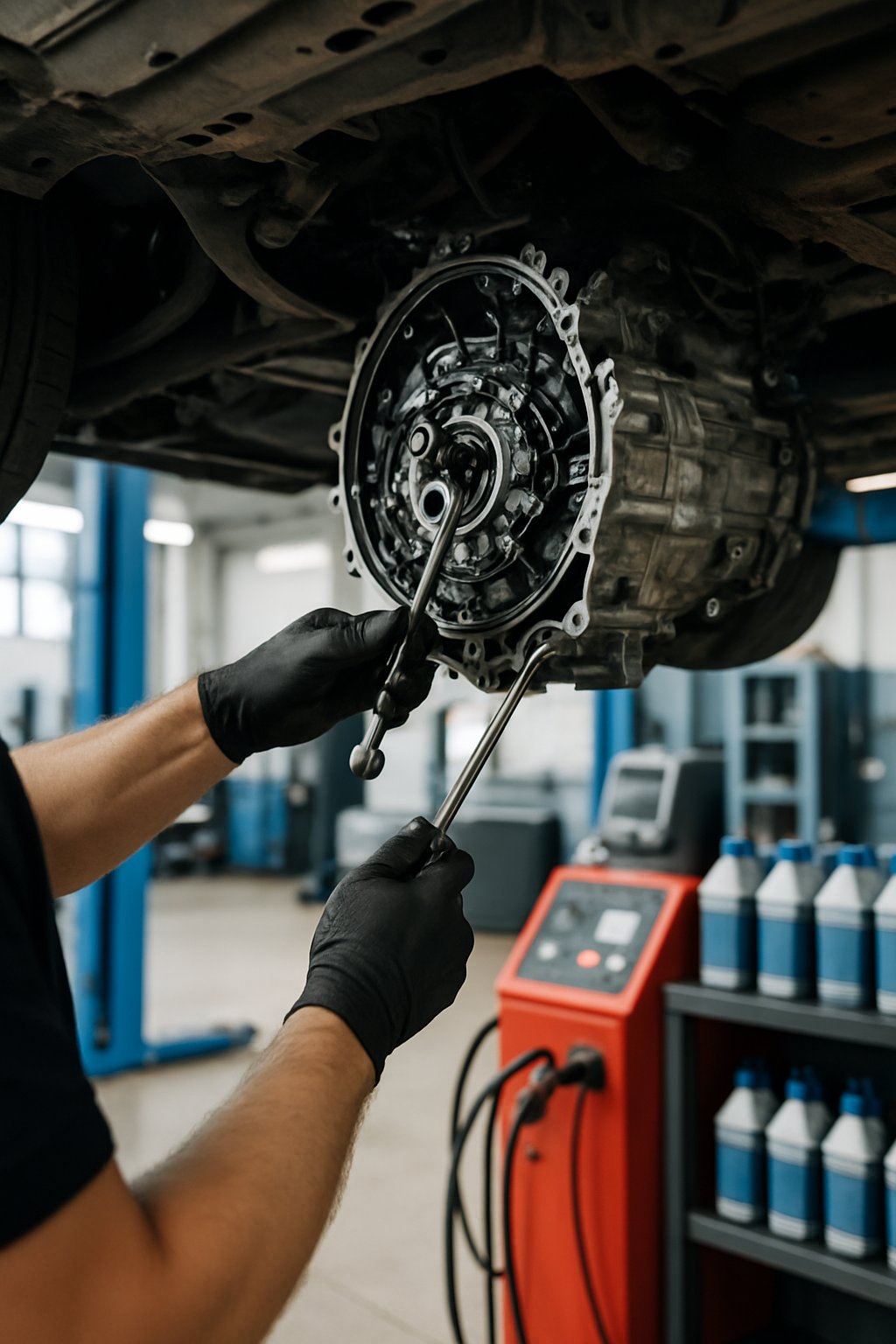
Without proper service, a DSG transmission can develop shifting problems and lose performance over time. The interval for this service typically ranges around 40,000 to 150,000 miles, depending on the vehicle model and driving conditions. Understanding what a DSG service includes and why it matters can help drivers avoid costly repairs and maintain their car’s efficiency.
A DSG transmission blends the smoothness of an automatic with the sporty feel of a manual, which makes it unique but also requires special care. Keeping up with the right service schedule supports the longevity and reliability of this advanced system. For more details on maintenance, see this guide to VW DSG Transmission Fluid Maintenance & Service.
Is VW DSG Transmission Reliable

The VW DSG transmission is generally seen as reliable when properly maintained. It uses a dual-clutch system that offers fast and smooth gear changes, combining the benefits of manual and automatic transmissions.
However, its complexity means it requires regular service. Without proper care, issues like rough shifting, slipping, or failure can happen. Regular fluid and filter changes are crucial to prevent these problems.
Some common concerns include:
- Early wear of clutch packs
- Mechatronic unit failures
- Transmission jerking or hesitation
Most of these issues happen in cars with poor service history or high mileage. Cars with consistent DSG maintenance usually show fewer problems.
A wet clutch DSG system, found in models after 2012, tends to be more reliable than dry clutch versions if the recommended service intervals are followed.
Pros
- Fast gear shifts
- Fuel efficient
- Smooth driving experience
Cons
- More expensive repairs
- Requires scheduled maintenance
- Complex parts
Drivers are advised to watch for warning signs like unusual noises or rough shifting. Early detection and service help extend the transmission’s life.
For more details on problems and maintenance, readers can visit Volkswagen DSG transmission reliability discussions and expert guides such as those at VolkswagenBuddy and Honest John.
Volkswagen DSG Transmission Models
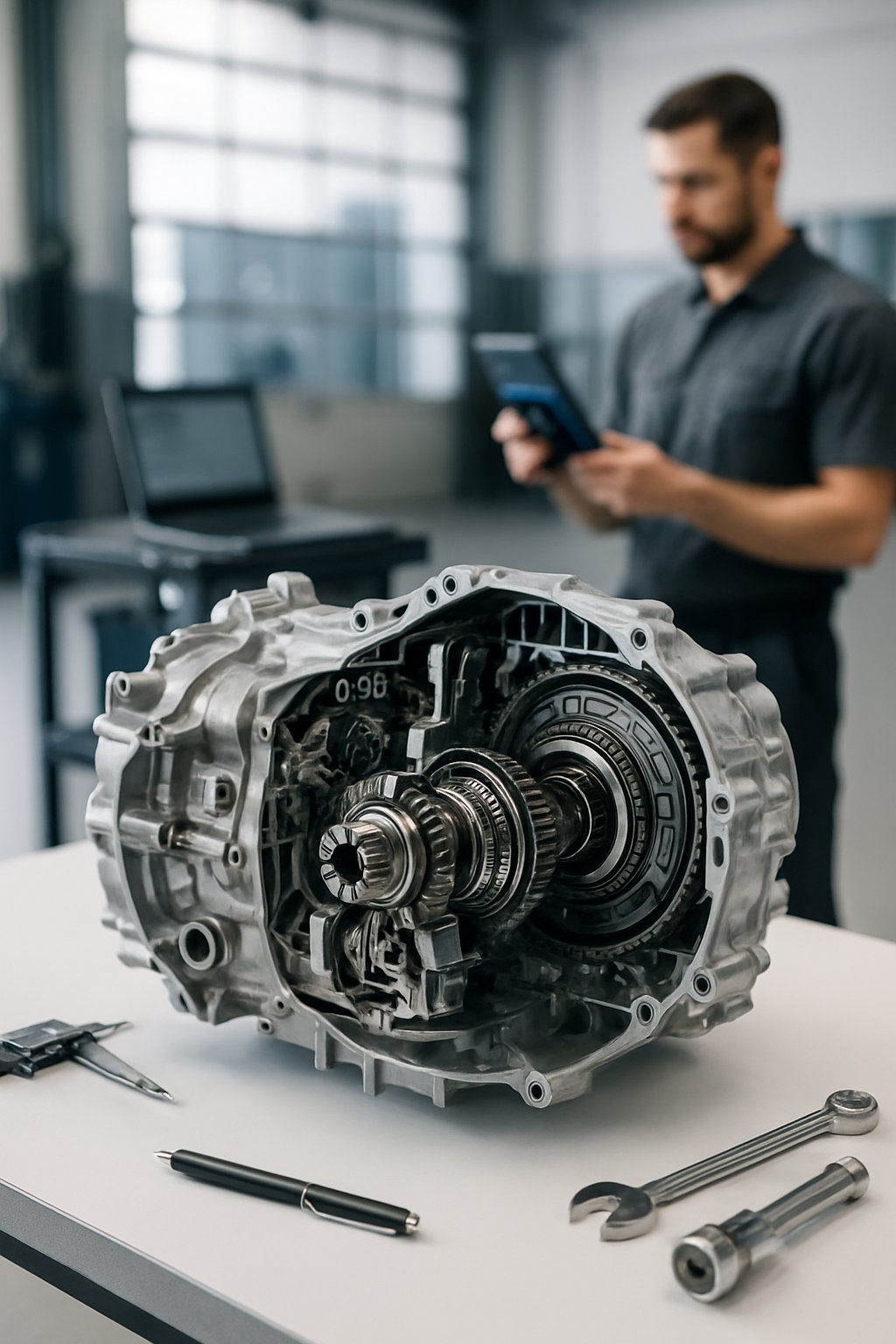
Volkswagen uses the DSG transmission in many of its popular car models. It combines quick gear changes with easy automatic driving.
Some common Volkswagen models with DSG include:
- Golf GTI
- Passat
- Jetta
- Tiguan
- Arteon
These models benefit from the DSG’s dual-clutch design, which allows smoother and faster shifting than traditional automatic transmissions.
The DSG is often available in both 6-speed and 7-speed versions, depending on the vehicle and engine type. The 7-speed DSG is more common in newer models and improves fuel efficiency and performance.
Volkswagen designs the DSG to work well with both small and large engines, from compact hatchbacks like the Golf to bigger SUVs like the Tiguan.
Because the DSG uses two clutches, it can pre-select the next gear. This leads to shorter gear change times and a sportier driving feel.
Knowing which Volkswagen models have DSG can help owners understand when and how to service their transmission. Proper care is essential to keep these models running well over time.
More details about Volkswagen’s DSG-equipped vehicles and maintenance needs can be found at VolkswagenBuddy.
Understanding DSG Transmission
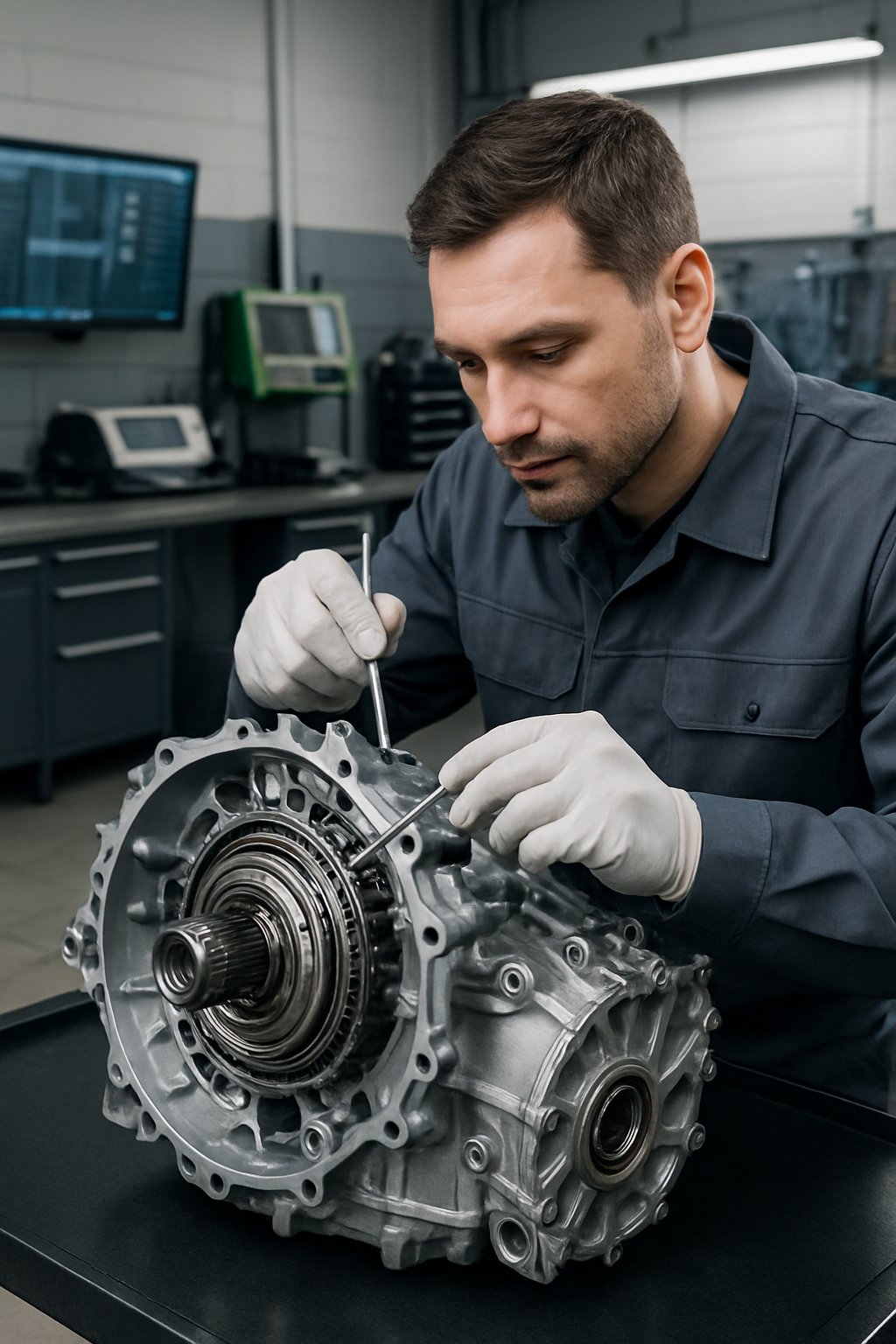
The DSG transmission combines features of both manual and automatic gearboxes. It is designed to deliver quick shifts and improve fuel efficiency. This section explains how it works, how it differs from standard automatic transmissions, and which Volkswagen models use it.
How a Direct-Shift Gearbox Works
A Direct-Shift Gearbox (DSG) uses two separate clutches for odd and even gears. While one clutch engages the current gear, the other pre-selects the next gear. This allows for nearly instant gear changes without interrupting power delivery.
The system works electronically, controlled by a transmission control unit. It manages the clutches and shifts quickly for smooth performance.
Because the DSG operates without a torque converter like in traditional automatics, it offers better fuel economy and faster shifts. However, it is more complex and requires regular service to maintain these benefits.
Differences Between DSG and Automatic Transmission
Unlike a typical automatic transmission, which uses a torque converter and planetary gearset, the DSG uses two separate manual gearboxes combined into one unit. This design allows it to blend the control of a manual with the ease of an automatic.
DSG offers faster, more precise gear changes and often better fuel efficiency compared to traditional automatics. However, it demands specific maintenance like fluid and filter changes to prevent wear.
Traditional automatics may feel smoother at very low speeds, but DSG transmissions excel in sporty driving due to the rapid gear shifts and direct power transfer.
Volkswagen Models Featuring DSG
DSG transmissions are widely used across many Volkswagen models. Popular cars like the Golf GTI, Jetta, Passat, and Golf R feature DSG gearboxes for their performance and efficiency benefits.
Volkswagen also uses DSG in some SUVs and crossover models, such as the Tiguan, to provide a more dynamic driving experience.
These models benefit from DSG’s quick shifts and fuel savings. Owners should follow recommended service intervals to keep the DSG transmission operating smoothly and avoid costly repairs. For more detailed information, see Volkswagen’s DSG transmission service guide.
Why DSG Transmission Service Is Necessary
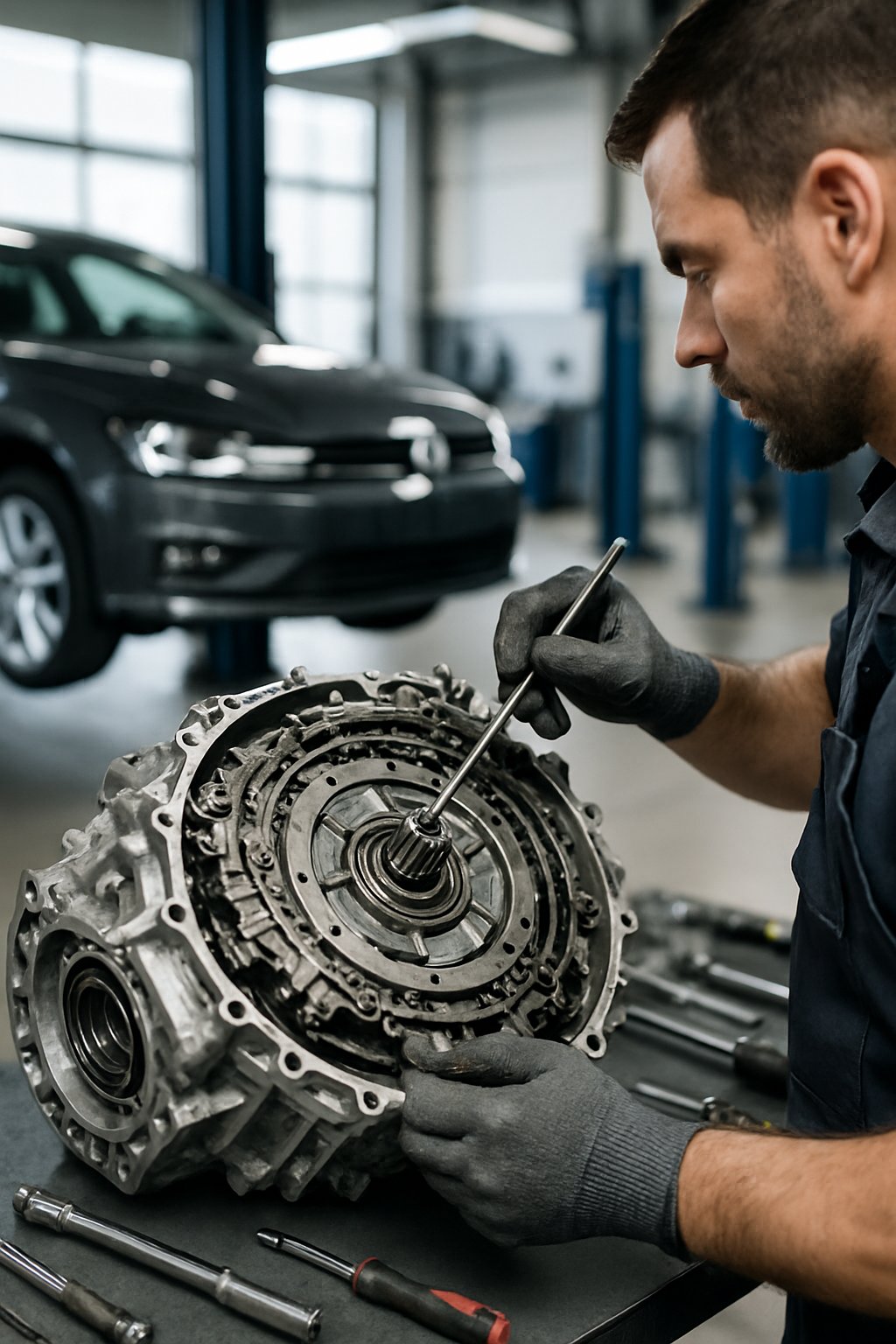
A DSG transmission needs regular care to keep working smoothly and avoid damage. The transmission fluid plays a crucial role in cooling and lubricating the internal parts. Ignoring the service can lead to serious issues, and early warning signs often show before major problems develop.
Role of Transmission Fluid in DSG
The transmission fluid in a DSG acts like the car’s lifeblood. It cools the dual-clutch system and lubricates gears and bearings to reduce friction. Over time, this fluid gathers metal particles and loses its ability to protect the components.
Regularly changing the transmission fluid ensures consistent shifting performance and prevents overheating. Volkswagen recommends servicing the DSG transmission fluid every 40,000 miles, but some experts suggest 20,000 to 30,000 miles for the best results.
Clean fluid helps maintain fuel efficiency and extends the transmission’s life. Without fresh fluid, the DSG may become sluggish or harsh when shifting.
Risks of Neglecting Service
Neglecting DSG maintenance can cause problems that start small but quickly grow worse.
Symptoms like jerky or delayed shifts signal internal wear. If fluid is old or contaminated, it can cause clutch plates inside the transmission to slip or stick.
Left untreated, these issues may trigger warning lights and lead to costly repairs, including a full transmission rebuild or replacement. Damage can also reduce fuel economy and overall vehicle performance.
Skipping service shortens the lifespan of the DSG transmission, which is expensive to fix on Volkswagen models.
Common Warning Signs of Service Needs
Drivers should watch for certain symptoms indicating that DSG service is overdue.
- Jerky or rough gear changes
- Transmission warning lights on the dashboard
- Strange noises during shifting
- Delayed response when changing gears
- Loss of power or slipping feeling
These signs usually appear before mechanical failure but should never be ignored. Timely transmission fluid and filter changes restore smooth gear shifts and help avoid complex repairs.
Checking the owner’s manual and following service intervals for DSG transmissions keeps these warnings from turning into bigger problems. For more detailed guidance on DSG maintenance, see this complete guide.
Recommended DSG Service Intervals

DSG transmissions require routine servicing to maintain smooth shifting and avoid costly repairs. Service intervals depend on manufacturer guidelines and how the vehicle is driven. Proper timing helps protect transmission parts and keeps performance stable.
Volkswagen Maintenance Schedule
Volkswagen generally recommends servicing the DSG transmission every 40,000 to 60,000 miles (about 60,000 to 100,000 kilometers). Some sources suggest a maximum of four years between services, whichever comes first. This service usually includes changing the transmission fluid and replacing the filter.
The most common interval is around 60,000 kilometers or 4 years. For VW models with heavier use, earlier servicing is advised to prevent wear. This schedule helps keep the transmission fluid fresh and avoids sludge buildup.
Owners should always check the specific service intervals in their vehicle’s handbook or through dealership advice, as the recommendations can vary by model and year.
Impact of Driving Habits on Service Frequency
Driving style and conditions directly affect how often a DSG transmission needs servicing. Heavy city traffic, frequent stop-and-go situations, and towing place extra stress on the gearbox. This can cause the transmission fluid to degrade faster.
Aggressive or sporty driving also wears the fluid and components sooner, requiring more frequent maintenance—sometimes every 20,000 to 30,000 miles for high-performance or heavily used vehicles.
In contrast, mostly highway driving with smooth gear changes may allow for longer service intervals. Drivers should consider their specific conditions and consult a professional if unsure.
Regular checks and sticking to the schedule prevent jerky shifts, transmission faults, and expensive repairs down the line.
For detailed Volkswagen DSG service intervals and advice, see Volkswagen DSG maintenance schedules.
What Happens During a DSG Transmission Service
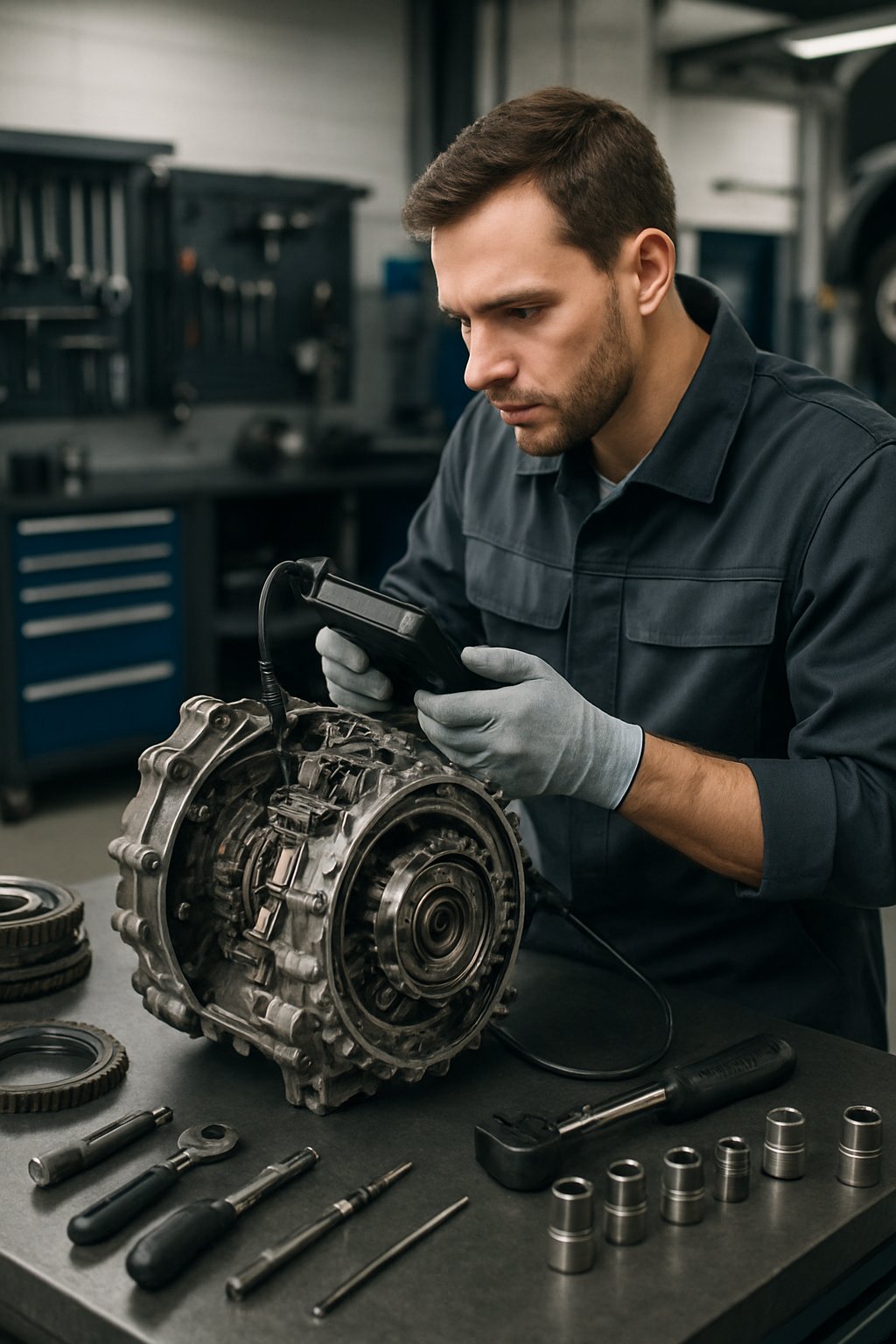
A DSG transmission service focuses on replacing worn fluids and parts, checking transmission components for damage, and using special diagnostic tools. This process helps maintain smooth gear shifts and extends the life of the transmission. The work involves careful fluid changes, thorough inspections, and precise adjustments with the right equipment.
Fluid and Filter Change Procedures
The service starts with draining the old transmission fluid. DSG transmissions require specific fluid types to lubricate and cool the dual clutches properly. Over time, this fluid breaks down and gets contaminated, which can reduce performance and cause damage.
After draining, the mechanic replaces the transmission fluid filter. This filter captures particles and debris that can wear down internal parts. Replacing the filter ensures clean fluid circulation.
Fresh, correct-grade fluid is then added to the transmission. The exact fluid amount is measured carefully to prevent problems like overheating or slipping.
Inspection of Key Components
During service, the technician inspects the clutch packs for wear or damage. The dual-clutch system is critical to fast and smooth gear changes, so any clutch issues must be addressed.
Other components like the mechatronics unit, sensors, and solenoids are checked. These parts control gear shifts and electronic functions. If faults or leaks are found, further repairs might be needed to avoid future breakdowns.
Software updates are often done to keep the transmission control module current. This ensures better shift timing and responsiveness.
Special Tools and Equipment Required
DSG service needs specialized tools not found in regular transmission work. A diagnostic scanner tailored to DSG systems reads error codes and helps reset clutch engagement parameters.
A vacuum or pressure tool may be used to drain and refill the transmission fluid properly. Precise fluid levels are critical for performance and longevity.
Software calibration tools update the transmission’s control unit. This step is necessary after some repairs or fluid changes to maintain smooth operation and prevent rough shifting.
Using certified tools ensures the DSG transmission stays in good condition and performs as designed by Volkswagen.
DIY vs Professional DSG Service
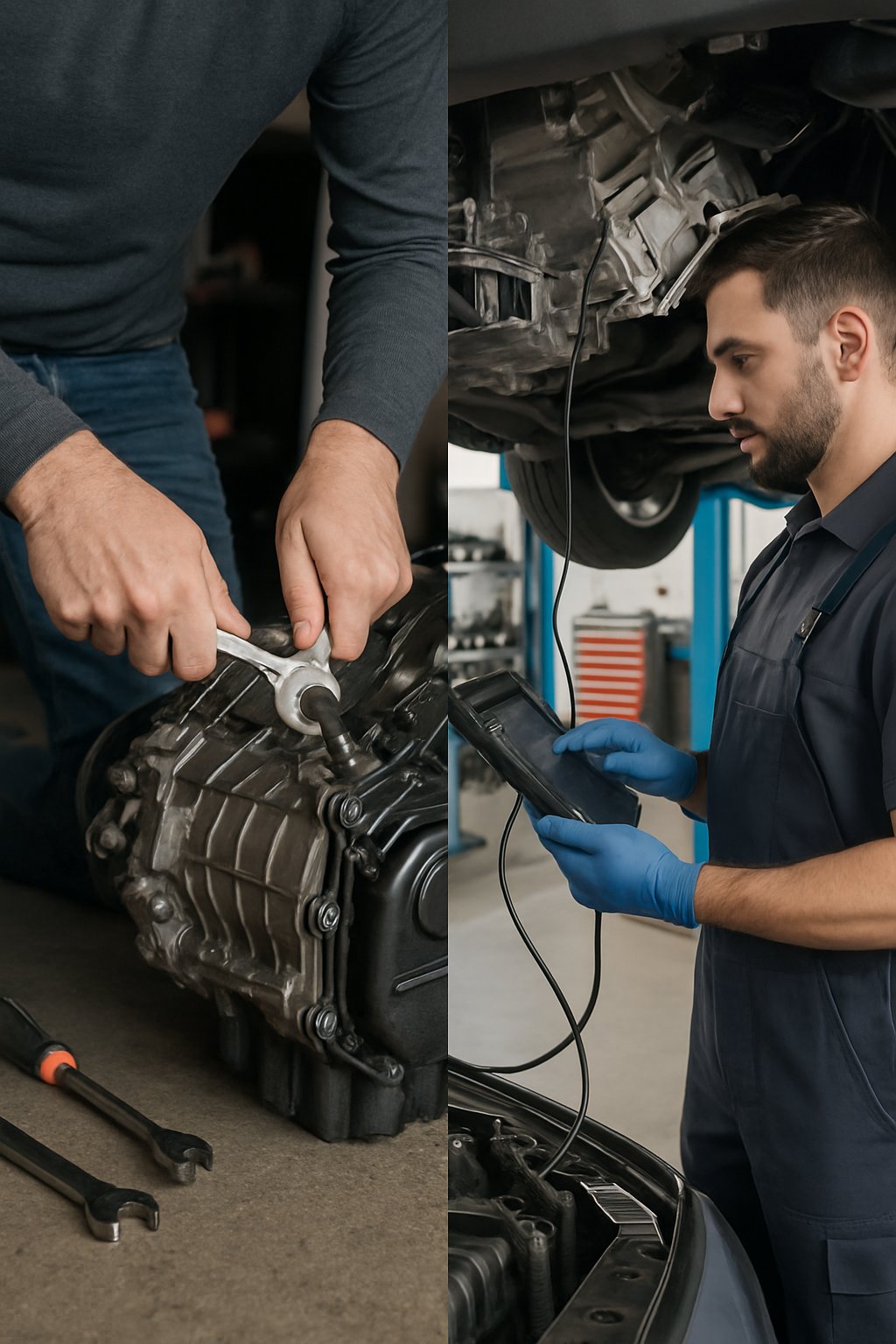
DSG transmission service requires care and precision to avoid costly problems. Some choose to perform the maintenance themselves, while others go to a specialist. Understanding the advantages and risks of both approaches helps make the best decision for a Volkswagen DSG service.
Pros and Cons of DIY Maintenance
Doing a DSG service at home can save money. The cost of parts and fluid kits is often lower than paying for labor at a shop. Basic mechanical skills and the right tools like a fluid pump, torque wrench, and scan tool for adaptation reset are necessary.
However, DIY risks include incorrect fluid levels or missing steps. DSG transmissions are sensitive, and mistakes can cause shifting issues or damage. Removing and replacing the filter and properly bleeding the system can be tricky. DIY is best for those confident in car maintenance and who follow detailed guides closely.
Choosing a Qualified Volkswagen Specialist
A professional Volkswagen specialist knows the exact DSG service intervals for each model, typically every 40,000 miles or sooner under heavy use. They have proper tools and experience to perform a full fluid and filter change while resetting transmission adaptations.
Specialists ensure precise fluid levels and identify any issues during service. This reduces the risk of transmission damage or rough shifting. While more costly (usually $300 to $500), professional service provides peace of mind and preserves vehicle performance. For many, this reliability justifies the price over a DIY approach.
For more details on the steps and tools involved, see this complete guide to servicing a DSG transmission.
Frequently Asked Questions

DSG transmission service involves specific intervals, detailed maintenance steps, and different needs depending on the transmission type. It can be done by a professional or, in some cases, by a skilled owner. Recognizing warning signs early helps prevent damage and keeps the transmission running smoothly.
How often should a DSG transmission be serviced?
The recommended service interval is typically every 40,000 to 60,000 miles. Some manufacturers, like Volkswagen, suggest 150,000 miles but recommend more frequent service for severe driving conditions or towing.
For better performance and longevity, servicing every 20,000 to 30,000 miles is often advised. Always check the vehicle’s manual for model-specific guidance.
What is involved in a DSG transmission maintenance routine?
Maintenance usually includes draining and replacing the transmission fluid and changing the DSG filter. It also involves inspecting for leaks and checking for early signs of clutch wear.
Sometimes, resetting transmission adaptation values with diagnostic tools is part of the routine to ensure smooth shifting and proper function.
Can I perform a DSG transmission service myself, or does it require a specialist?
A DSG service can be done by someone with mechanical skills and the right tools, such as a fluid transfer pump, torque wrench, and scan tool. However, the process requires care to avoid underfilling or overfilling the fluid.
If unsure, professional servicing is recommended to prevent costly mistakes and ensure proper handling.
What are the signs that my DSG transmission may need servicing?
Signs include rough or delayed gear shifts, slipping gears, warning lights on the dashboard, and unusual noises. Decreased fuel efficiency and loss of power can also indicate needed maintenance.
Early attention to these symptoms can help avoid serious transmission damage.
Is there a difference in service needs between a 6-speed and a 7-speed DSG transmission?
Both 6-speed and 7-speed DSG transmissions require fluid and filter changes, but specific service intervals and procedures may vary by model and manufacturer.
Checking the owner’s manual or professional advice is important to follow the correct service schedule for each transmission type.
How does servicing a DSG transmission impact its performance and longevity?
Regular servicing keeps gear changes smooth and maintains fuel efficiency. It prevents wear on components like clutches and gears, reducing the risk of serious failures.
Proper maintenance extends the life of the transmission and helps avoid expensive repairs.
For more details, see this complete guide to DSG service.






